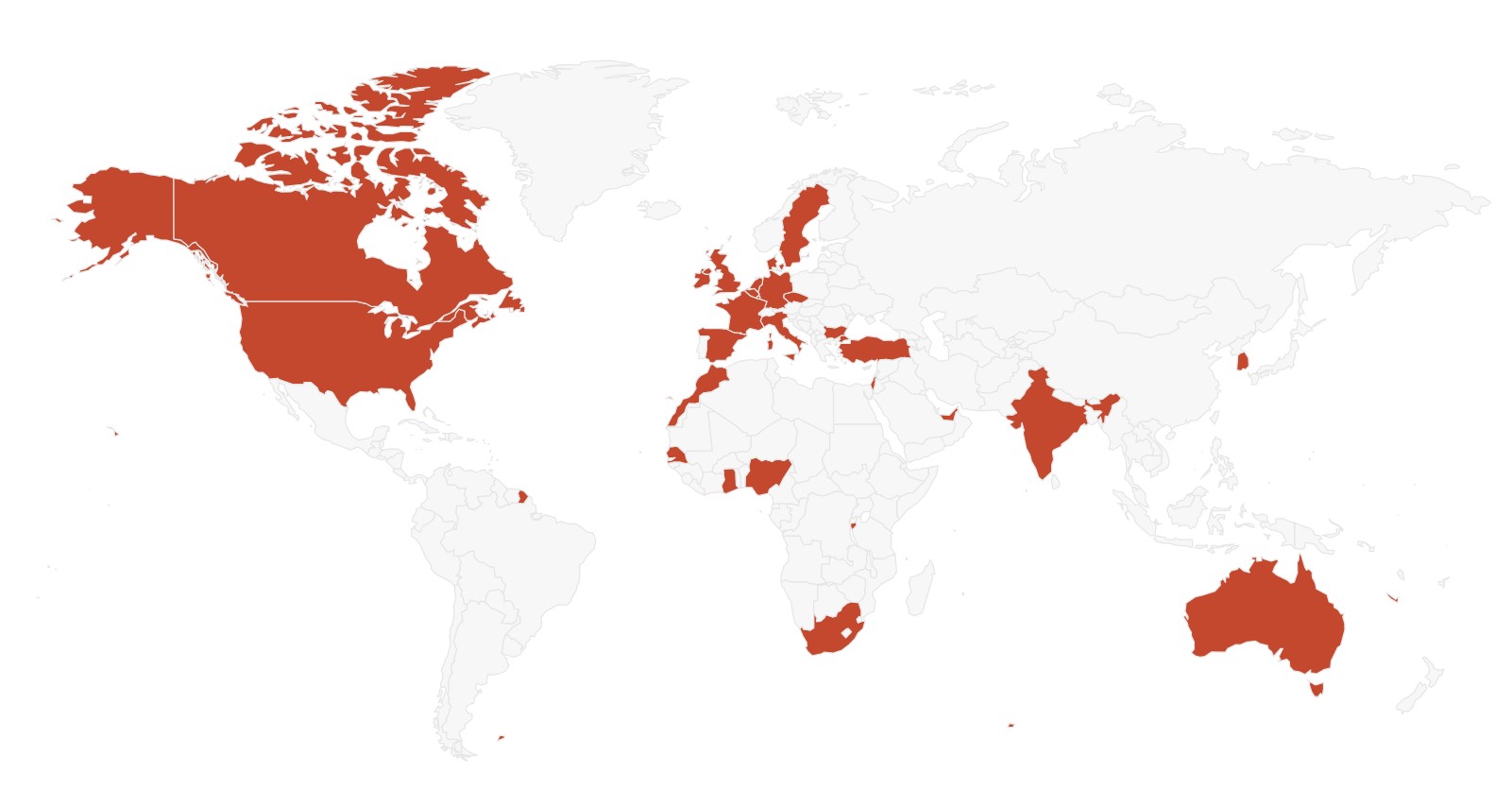Africa, the world’s second-largest and second-most populous continent, is often celebrated for its rich cultural diversity and vast potential. However, when it comes to its digital presence, the continent lags significantly behind other regions. A stark example of this digital divide is evident in the disparity of participation in the .africa Top-Level Domain (TLD), where Africa itself significantly trails behind other continents.
I have been active on the internet in Africa, working on a number of projects, since the late 2000s. So I know too well the glaring disparities of the divide. As experienced as I am now, I should not be surprised but I still do. It still shocks me.
At first glance, one might assume that the .africa TLD would be predominantly utilized by African nations and entities to showcase their presence on the internet. However, the reality is quite different.
Only 9 .africa TLD registrars are on the African continent. Europe has some 40 .africa registrars. North America has 13. France, with all its colonial issues has double what SA has and 3 short of the entire continent.
Africa’s engagement with its own digital identity is alarmingly low!
This stark contrast in registrar numbers raises critical questions about Africa’s digital strategy and its commitment to leveraging digital platforms for economic growth and empowerment.
It’s particularly embarrassing when considering Africa’s minimal contribution to global trade, hovering at less than 3%. In an increasingly interconnected world where digital presence is a prerequisite for economic competitiveness, Africa’s underrepresentation in the digital sphere is concerning, to say the least.
Moreover, the breakdown of African registrars further emphasizes the uneven distribution of digital participation within the continent. Out of the nine registrars, South Africa leads with three, followed by Morocco with two. Additionally, there is one registrar each in Burundi, Ghana, Nigeria, and Senegal. While these numbers might seem insignificant compared to other continents, they shed light on the challenges and opportunities faced by African nations in establishing a robust digital presence.
The imbalance in registrar distribution raises further interrogation into why nations from former colonizers of the continent appear to be more active in the .africa TLD than the continent itself. This disparity hints at deeper issues of economic dependence and lack of indigenous digital infrastructure and expertise within Africa.
One plausible explanation for this phenomenon could be the historical legacy of colonialism, which has left many African nations grappling with systemic challenges in various sectors, including technology and digital innovation. The remnants of colonial-era policies and economic structures continue to shape the dynamics of global trade and influence patterns of participation in digital domains like .africa.
Furthermore, the lack of emphasis on digital literacy and infrastructure development within African nations contributes to the disparity in registrar numbers. While some regions of Africa have made significant strides in expanding internet access and digital connectivity, many areas still lack basic infrastructure and face challenges such as limited access to electricity and high-speed internet.
It is high time for African nations to take the internet more seriously and prioritize the development of their digital ecosystems. Investing in digital infrastructure, fostering innovation, and promoting digital literacy are crucial steps towards closing the digital divide and enabling Africa to fully harness the potential of the digital economy.
Additionally, there is a need for greater collaboration between governments, the private sector, and international organizations to support the growth of the .africa TLD and promote African ownership and participation in the digital space. By empowering local entrepreneurs and businesses to establish a strong online presence, Africa can assert itself as a key player in the global digital economy.
In conclusion, the disparity in registrar numbers for the .africa TLD underscores the urgent need for Africa to prioritize its digital development agenda. Addressing this imbalance requires concerted efforts from governments, businesses, and civil society to invest in digital infrastructure, promote digital literacy, and foster an environment conducive to digital innovation and entrepreneurship. Only through collective action can Africa bridge the digital divide and unlock its full potential in the digital age.

What’s your take?